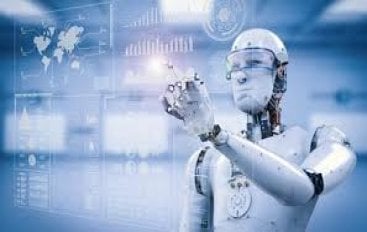
The Advent Of Artificial Intelligence May Revolutionize Drug Discovery – BW Healthcare
The use of machine learning models to search medical data and uncover insights to help improve health outcomes and patient experiences is referred to as artificial intelligence in medicine. Artificial intelligence (AI) is rapidly becoming an integral part of modern healthcare as a result of recent advances in computer science and informatics. AI algorithms and other AI-powered applications are helping medical professionals in clinical settings and ongoing research.
Artificial intelligence (AI) is becoming more widely used in the pharmaceutical industry, raising both excitement and concerns about its long-term viability and potential. In recent years, a slew of companies, ranging from large pharmaceuticals to start-ups, have cast AI as a panacea that will transform the industry.
Clinical decision support and imaging analysis are currently the most common roles for AI in medical settings. Clinical decision support tools assist providers in making decisions about treatments, medications, mental health, and other patient needs by providing them with quick access to relevant information or research.
The goal of drug discovery is to find new medicines that can help prevent or treat a specific disease. Although there are numerous types of drugs, many are small chemically synthesised molecules that can specifically bind to a target molecule—typically a protein involved in a disease.
Traditionally, researchers screened large libraries of molecules to identify candidates for drug development. Although rational structure-based drug design has become more common over time, it still necessitates multiple rounds of design, synthesis, and testing today.
Because it is difficult to predict which chemical structure will have both the desired biological effects and the properties required to become an effective drug, the drug discovery process remains costly and time consuming. Drug discovery is critical in the fight against diseases. The search for new and better drugs is never-ending, whether it is for a newly spreading pandemic or a well-known incurable disease.
For drug discovery, two popular screening methods are currently in use: classical pharmacology and reverse pharmacology. Traditional pharmacology investigates natural products and plant extracts for therapeutic effects. In contrast, reverse pharmacology entails determining the function and role of the molecule (gene/protein) targeted by the disease.
Both screening methods yield a large number of potential targets, which are further sorted based on target validation and pre-clinical animal testing. The current drug discovery process takes nearly a half-decade before the drug is tested on humans.
AI is paving the way for much safer and more dependable drug discovery and development techniques. It overcomes traditional R&D’s various challenges and constraints by analysing existing data to gain new biological insights. Target identification, biomarker development, and patient stratification will all benefit from the technology. Current drug discovery methods are time-consuming, unreliable, cruel, and expensive.
AI is transforming drug discovery and development by increasing clinical trial efficiency and enabling more agile and experimental working methods. The ability to match drug interventions with individual patients is one of the more time- and cost-saving applications of artificial intelligence, reducing work that previously required trial and error.
Machine learning models can predict a patient’s response to potential drug treatments by inferring potential relationships between factors that may influence the results, such as the body’s ability to absorb the compounds, the distribution of those compounds throughout the body, and a person’s metabolism.
Biomarker development is an important task not only in the context of medical diagnostics, but also in the drug discovery and development process.
For budget-constrained pharmaceutical companies, repurposing drugs appears to be one of the most immediate areas where AI-based technologies can provide significant value. Repurposing previously known drugs or late-stage drug candidates into new therapeutic areas is a preferred strategy for many biopharmaceutical companies because it reduces the risk of unexpected toxicity or side effects in human trials while also requiring less R&D spend.
Compliance to a drug study protocol by voluntary participants in clinical studies is a major issue for pharmaceutical companies. If patients in a drug study violate trial rules, they must be removed from the study or risk tainting the drug study results.
One of the most important aspects of a successful drug trial is ensuring that participants take the prescribed dosage of the studied drug on time. That is why having a method to ensure drug adherence is critical. AI can separate the good apples from the bad by using remote monitoring and algorithms to evaluate test results.
In the case of medicines or drugs prescribed under standard care, AI can be used to understand patient behaviour. This allows a greater number of patients to benefit from the potential drug, influencing the overall progression of the disease condition.
Pharma companies all over the world are gathering a variety of data points, such as patients’ genes, in order to simulate and improve clinical trial outcomes. As a result, another advantage of AI in drug discovery is that it drastically reduces the time required to complete drug trials.
Today, however, we are attempting to solve for much more complex diseases and combat them with greater accuracy, safety, and efficacy than previous treatments. Fortunately, we now live in a time when there is a wealth of data about human biology available, as well as the ability to analyse large amounts of that data thanks to inexpensive and powerful technology. The potential of AI to address these complex diseases has grown significantly, but so has the difficulty of finding treatments and cures.
This content was originally published here.




